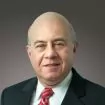This is the 44th in a series of WorkCite articles concerning the Patient Protection and Affordable Care Act and its companion statute, the Health Care and Education Reconciliation Act of 2010 (referred to collectively as the Act). This article discusses the conflicting decisions issued last week by two circuit courts of appeal on whether federal tax subsidies under the Act are available to eligible individuals who purchase health insurance on an exchange run by the federal government rather than by a state.
Although the Act requires states to establish exchanges, it also provides that if a state does not establish an exchange, the federal government will establish and operate the exchange in that state. The federal government now operates exchanges ("federally-facilitated exchanges") in the 36 states that have not established their own exchanges.
The entitlement to tax subsidies impacts the penalties assessed to enforce the Act's employer mandate and the individual mandate in the states having federally-facilitated exchanges.
- Penalties related to the employer mandate to offer health coverage to full-time employees ("play or pay") may be triggered when an employer's employees obtain federal subsidies in connection with purchasing health insurance through an exchange. Therefore, if individuals obtaining coverage in a federally-run exchange in a state are not eligible for subsidies, their employers would not be subject to the Act's penalties for not offering coverage to them.
- Penalties under the individual mandate to maintain health coverage do not apply if the individual lacks "affordable coverage," meaning that his or her required payment for coverage does not exceed 8 percent of household income. For individuals who are able to purchase coverage only in the individual market in a state, affordability is determined after taking into account any federal tax credit available under Section 36B of the Internal Revenue Code, added by the Act, determined as if the individual were covered under a qualified health plan offered through an exchange. If the tax credit is unavailable to individuals residing in a state that has a federally-run exchange, coverage under an exchange may not be affordable and therefore they may be exempt from penalties.
The Court of Appeals for the District of Columbia Circuit, in Halbig v. Burwell, 2014 U.S. App. LEXIS 13880 (D.C. Cir. July 22, 2014), and the Court of Appeals for the Fourth Circuit, in King v. Burwell, 2014 U.S. App. LEXIS 13902 (4th Cir. July 22, 2014), have issued opposing opinions on the validity of an Internal Revenue Service (IRS) regulation interpreting Section 36B.
Section 36B(b)(2) provides a refundable federal income tax credit equal to a "premium assistance amount," based on the cost of a "qualified health plan ... enrolled in through an Exchange established by the State under [Section] 1311 of the [Act]" [emphasis added]. Section 36B(c)(2)(A)(i) also references subsidized enrollment "through an Exchange established by the State" [emphasis added]. However, under Treasury Regulation Section 1.36B-2(a)(1), these premiums are available in connection with enrollment for coverage under federally-facilitated exchanges as well as state exchanges.
In Halbig, the court ruled 2-1 that the Section 36B tax subsidies may not be legally provided for individuals who purchase policies on federally-run exchanges, thus ordering that the regulation be vacated. In his opinion, Judge Griffith stated:
The government urges us, in effect, to strike ... the phrase "established by the State," on the ground that giving force to its plain meaning renders other provisions of the Act absurd. But we find that the government has failed to make the extraordinary showing required for such judicial rewriting of an act of Congress.
Judge Randolph's concurring opinion noted:
Justice Brandeis' opinion for the Supreme Court in Iselin v. United States is controlling: "What the government asks is not a construction of a statute, but, in effect, an enlargement of it by the court, so that what was omitted, presumably by inadvertence, may be included within its scope. To supply omissions transcends the judicial function." 270 U.S. 245, 251 (1926).
Hours after the D.C. Circuit opinion was released, the Fourth Circuit ruled unanimously in King that the Act's premium tax subsidies are available for individuals who purchase policies on federally-facilitated exchanges. Two judges of the Fourth Circuit found the phrase "established by the State" was "ambiguous and subject to multiple interpretations" and upheld the regulation "as a permissible exercise of the agency's discretion." Judge Davis found the IRS interpretation to be the clearly correct interpretation of an unambiguous statute and accused the plaintiffs of seeking to
deny to millions of Americans desperately-needed health insurance through a tortured, nonsensical construction of a federal statute whose manifest purpose, as revealed by the wholeness and coherence of its text and structure, could not be more clear.
The D.C. Circuit's panel decision has been temporarily stayed, and the government has requested en banc review by all judges of the circuit. Meanwhile, cases raising the same issue are pending in the Seventh and Tenth circuits. Supreme Court review may be a year or two away.
The conflicting opinions inject more uncertainty into the complex regulatory structure of the Act. For the moment, employers should continue efforts to come into compliance with the play-or-pay mandate effective in 2015 while these issues play out in the courts.
The content of this article is intended to provide a general guide to the subject matter. Specialist advice should be sought about your specific circumstances.


